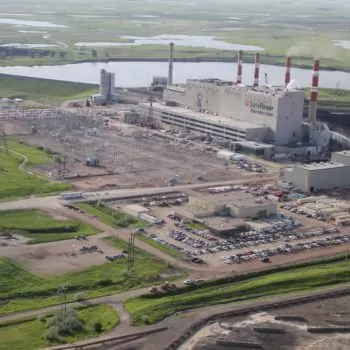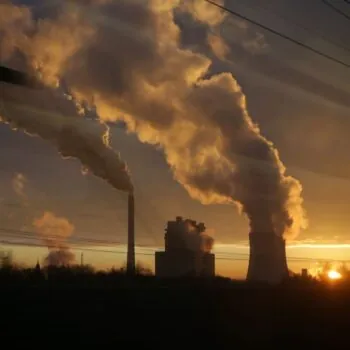When the German Government offered to support Fiji in hosting COP23, little did it realise it was digging itself a political hole.
Instead of being able to promote itself as a climate champion, Germany has instead found itself roundly criticised for its continuing dependence on dirty coal, just as it grapples with coalition negotiations to form a new government.
Across the two weeks of COP23, the inescapable unofficial theme has been the need to phase out coal.
The launch of the Beyond Coal campaign and the ‘End Coal’ theme of the climate march in Bonn set the tone for the fortnight with tens of thousands taking to the streets. Additionally, we saw the occupation of the ende gelaende coal mine not far from the climate talks. And to top it all off, Greenpeace activists staged a protest on a coal ship carrying several thousands of tonnes of coal past then COP to highlight Merkel’s dirty secret.
The sense of momentum was further bolstered by the announcement that Michael Bloomberg was stepping up to inject $50M into the fight against coal internationally.
And we at E3G were delighted to add our support with a coal phase out event in partnership with the British Embassy.
Closer to home, the citizens of Munich voted to shut down their remaining coal station in 2022, joining Berlin State in committing to phase out coal, demonstrating the power of civil society to push local and regional authorities to tackle emissions from coal.
Over 50 Business voices within Germany have also aired their support for the Government to make climate policy a clear priority and request a firm commitment to a socially viable pathway for phasing out coal.
But, judging by Angela Merkel’s speech on Wednesday in Bonn, more work is needed – her speech made no direct reference to German coal or the need to tackle its emissions.
So the recent high profile watershed launch of the new Powering Past Coal Alliance is deeply significant and warmly applauded by E3G. Germany now finds that its neighbours to the North, West and South are all members of the Alliance. And even its recalcitrant neighbour Poland to the East is claiming that it is taking action faster than Germany!
More broadly, the Powering Past Coal Alliance of progressive countries and sub-national actors provides an unprecedented opportunity to increase momentum on coal phase out with its aim to grow to at least 50 members by COP24 in Katowice, Poland.
The Alliance can show real leadership internationally on the phase out of coal and provide experience, expertise and support to other countries (including Germany) seeking to make their transition away from coal.

The creation of the Alliance and its launch at COP23 is also an important sign of organised opposition to those countries and industry lobbies that continue to promote coal. The positive energy and standing room only at the launch of the Alliance contrasts with the splendid isolation of the Trump Administration, whose decision to promote coal at the COP totally misfired and was likened to promoting ‘Tobacco at a cancer summit’. But also in this category are the likes of Japan, which has received repeated criticism for the growing conflict between their supposed support of climate action and their persistent promotion of coal.
As the curtains falls on COP23, we encourage the Powering Past Coal Alliance to seize the momentum created around its launch at COP and to bring forward an ambitious and engaging programme of work through 2018.
This should include developing policies to supporting a sustainable and Just Transition for workers and communities impacted by the phase out of coal, and also on developing further constraints on the international financing of coal. By combining positive support and diplomatic smarts the Alliance can accelerate the transition from dirty coal to clean energy.
And for Germany itself the challenge is clear. As the new German government coalition is formed it will have to make a crucial decision – does it want to be part of the ‘coolest club in town’ or stay stuck in its coal hole?



